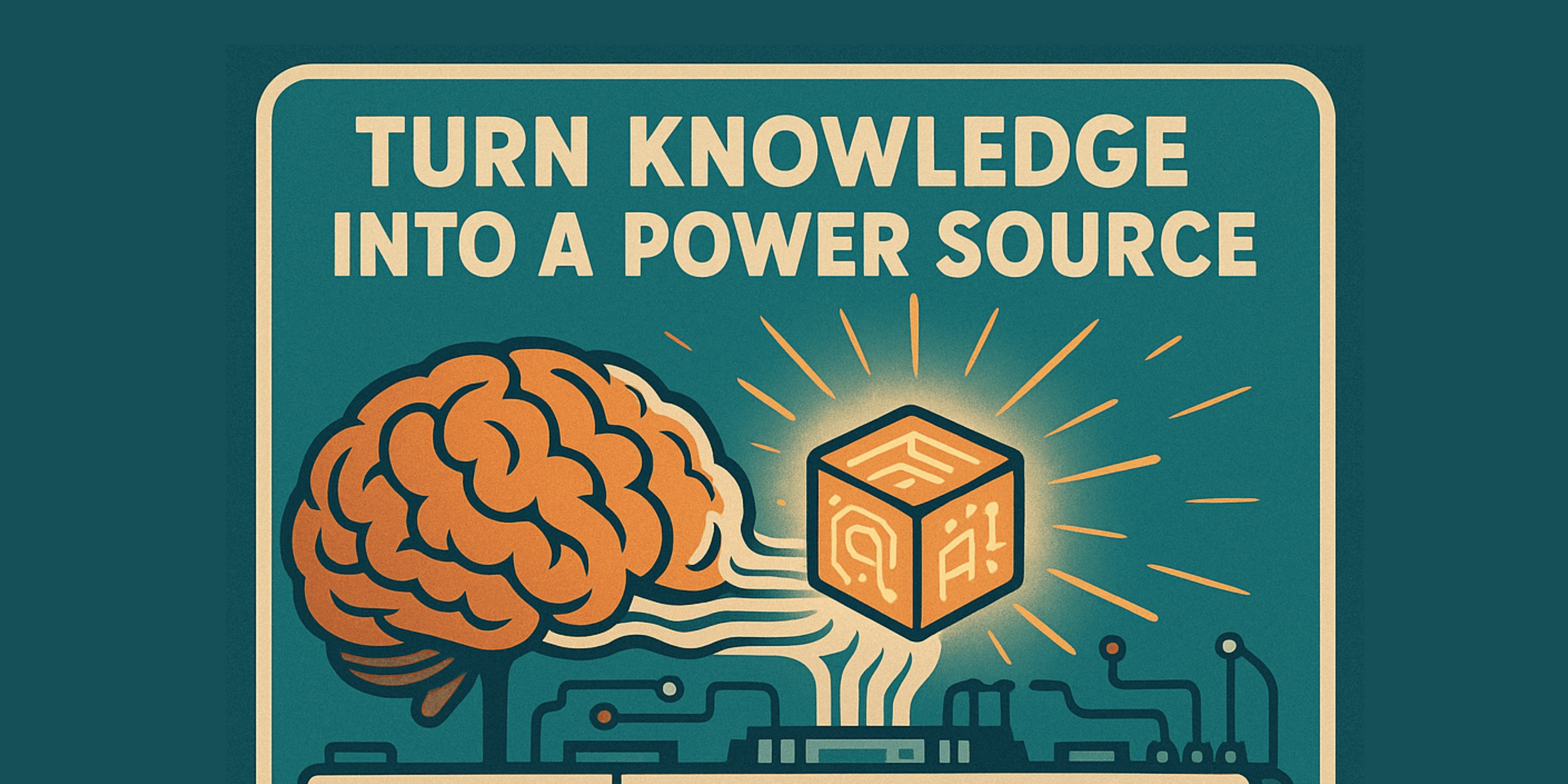'AI-first' Consultants - The Future Of Consulting
Jul 1, 2025
Recently our Co-Founder, Ikum Kandola, was featured in an article by Illuminaire. The article discusses how AI is reshaping the consulting industry, AI consulting platforms, How AI gives SME consulting firms the advantage over giant companies like the Big Four and Changes to the job market due to AI.
Article Snippets:
As clients demand faster delivery, lower costs and higher quality, traditional consultancy firms face an existential threat. A new generation of AI-native consultancies is emerging, reshaping the business model, pricing structures and human roles that have defined the sector for decades.
The structural cracks in the consultancy business model are no longer hairline fractures. A quieter revolution is underway as generative AI begins to automate the most time-consuming tasks, and clients grow impatient with bloated teams and premium fees. At the heart of this transformation are innovators such as Ikum Kandola, founder of The AX, an AI consultancy platform built to help consultants become truly AI-native.
The triggers are not subtle. According to an IBM survey from October 2024, 86 per cent of buyers of consulting services are actively seeking advisors who integrate AI into their work. Nearly 90 per cent expect AI to be used to improve productivity and quality. “The people buying consultancy are expecting prices to come down,” Kandola says. “They are expecting services to be faster. And structurally, particularly within the Big Four, we see the traditional model becoming less effective. That old reliance on junior consultants to do the heavy lifting of data gathering and slide decks is no longer sustainable.”
Clients are asking different questions
Whereas consultancy once depended on knowledge asymmetry, generative AI has levelled the playing field. “People do not need to pay £30,000 for someone to make them GDPR compliant anymore,” Kandola adds. “Many tasks that required specialist support can now be done, or at least initiated, by AI. Clients are already using it before they even engage a firm.”
This shift is accelerating a pivot from time-based engagements to outcome-based pricing. But legacy firms are slow to respond. “We have not seen the Big Four adapt,” Kandola says. “Clients want reduced prices and faster engagements, but the consultancies still rely on outdated delivery models. They use ChatGPT here and there, but that is not transformation. That is augmentation.”
At The AX, the approach is different. The idea is to productise consultancy. Not by turning services into apps but by embedding human domain knowledge into AI systems that can scale. “An AI-native consultancy needs to use AI at every stage of the process,” he explains. “From discovery and assessment through to analysis and reporting. And that means codifying your frameworks and expertise into a platform that can support clients directly, not just assist consultants.”
This distinction is critical. Using generic tools like ChatGPT can speed up document generation or accelerate research, but it does not change the delivery model. “To make that leap, consultancies need their own domain-specific platforms,” Kandola adds. “Not something off the shelf. Something that has their knowledge baked in. Only then can they offer a self-serve model that reduces consultant time, cuts cost and improves consistency.”
Democratising strategy
One of the more compelling consequences of this shift is the democratisation of strategy. Traditionally, high-level consultancy advice was the preserve of corporations with significant budgets. More companies can afford access to strategic support if AI-native platforms can automate parts of the engagement process. “This can reduce the cost barriers,” Kandola says. “Engagements can become smaller, faster and more affordable. What was once a six-week project costing tens of thousands might now be a two-day AI-guided assessment. That opens the door to clients who previously would never have engaged a consultancy.”
But the implications go further. If consultancy knowledge is embedded into AI platforms, the role of the human consultant changes. The focus moves from creating documents to creating frameworks. From performing assessments to validating outputs. From managing projects to designing systems. “It is not just about using AI more efficiently. It is about becoming a different kind of organisation,” Kandola says.
This shift also has cultural implications. Traditional consultancy firms, particularly the large incumbents, are often risk-averse and bureaucratic. “Even getting approval to use AI can take months,” Kandola says. “The big firms are slow. They rely on too many layers of decision-making. That gives smaller, newer consultancies a huge advantage. They can move quickly, adapt their model and embrace the AI-native approach.”
From chat to codification
The degree of codification distinguishes a genuinely AI-native consultancy from one that merely experiments with AI. Most firms assume AI means using a chatbot to help write reports or generate ideas. But this is only the surface layer. The deeper transformation lies in encoding domain knowledge into systems that clients can use directly.
“This is not just uploading documents and talking to them with a chatbot,” Kandola explains. “It is about encoding frameworks in a structured way so that the AI can reason with them, not just read them. Once that happens, you can automate discovery, benchmarking, report writing and strategic analysis.”
The AX is designed to enable this shift. Firms can build AI-driven assessments that reflect their proprietary frameworks, allowing clients to self-assess and receive personalised feedback. “We do not rely on the AI to make things up,” Kandola adds. “We provide it with structured knowledge, then use it to interpret and apply that knowledge to each client context. That eliminates hallucinations and keeps everything grounded in the consultant’s expertise.”
Rethinking the role of people
Automation inevitably raises questions about human roles. “I think there will be real pressure on junior roles,” Kandola admits. “Much of their work can be automated now. We are already seeing layoffs in the industry. EY cut 2,450 staff recently. PwC laid off 1,800. This is not just an economic cycle. It is structural change.”
Human consultants will remain essential, particularly in areas where nuance, relationship-building and accountability are critical. “AI is not 100 per cent accurate,” Kandola says. “It never will be. It is great for general information. But you still need a human to lead the engagement for specific, sensitive or high-stakes issues.”
The key difference is who leads the conversation. “When you talk to ChatGPT, you lead the dialogue,” Kandola explains. “In a consultancy engagement, the consultant leads. They know which questions to ask. They know how to get to the root of a problem. LLMs don’t do that kind of reasoning and orchestration on their own.” The future, then, may lie in hybrid engagements. AI handles discovery, benchmarking and synthesis. Humans intervene at points of complexity, conflict or creativity. That creates a more scalable, affordable and responsive model that reflects what clients want.
A quiet revolution in plain sight
Kandola’s background offers a microcosm of the shift now taking place. From consultancy roles at PwC and Publicis Sapient to founding a generative AI platform for educators to now leading product development at The AX, his journey reflects the collision of domain expertise and technical innovation.
The challenge now is to convince the consultancy sector to follow. “Too many people still see AI as a productivity tool,” Kandola concludes. “They are not thinking about how it changes the business model. But those who go AI-native from the ground up will not just survive. They will reshape the entire industry.”




